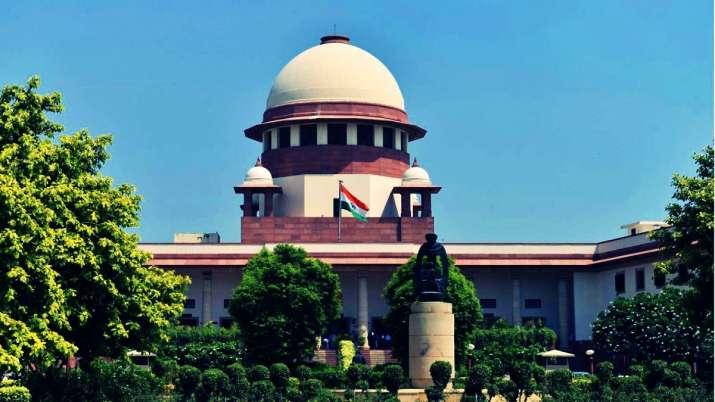Supreme Court Allows 2021-22 NEET-PG, UG Counselling Based on OBC/EWS Quota

Image Courtesy: PTI
In a big relief for doctors, the Supreme Court (SC) allowed the resumption of medical admissions after a four-month delay on Friday by clearing the start of the counselling process for NEET-PG and NEET-UG 2021-22 on the basis of the current 27% quota for Other Backward Classes (OBC) and 10% reservation for Economically Weaker Sections (EWS) in the All India Quota.
“We accept the recommendations of the Pandey committee that the criteria stipulated in OM 2019 (for EWS) be used for 2021–20 22 in order to ensure that the admission process is not dislocated,” a Bench comprising Justice DY Chandrachud and AS Bopanna said while pronouncing the verdict, Live Law reported. “We have been hearing this matter for two days. We must start counselling in the national interest.”
According to the verdict, “Counselling on the basis of NEET PG 2021 and NEET UG 2021 shall be conducted by giving effect to the resolution as provided by the notice dated July 29, 2021, including the 27% reservation for OBC category and 10% reservation for EWS category in the All India Quota seats.”
The top court allowed the Rs 8-lakh income criterion used by the Centre to determine EWS to operate for the current admission year so as to not delay admissions further. The court, however, ruled that future applications of EWS criteria will be subject to the final outcome of the petitions listed for hearing on March 5.
“The validity of the criteria determined by the Pandey committee for identifying the EWS prospectively for the future be subject to the final results of the petitions. The petition shall be listed for the final hearing on the validity of the EWS criteria as recommended by the Pandey committee in the third week of March 2022,” the SC ruled.
When the SC asked the government last year to explain the exercise it had undertaken to arrive at the Rs 8-lakh criteria, it had promised to revisit the criteria and sought four weeks to complete the exercise, according to The Indian Express. “You must have some demographic or socioeconomic data. You can’t just pluck the 8 million figure out of thin air,” Justice Chandrachud had said.
Subsequently, the Centre appointed a three-member committee that submitted its report on December 31 recommending that the Rs 8-lakh limit, continuing since 2019, may be retained but suggested some changes regarding application for the same.
Counselling, which was scheduled for October, got delayed after petitions challenging the government’s July 29 notification announcing the 27% and 10% reservations for OBCs and poor students respectively piled up, NDTV reported.
The Bench arrived at the verdict after hearing extensive arguments made by senior advocate Shyam Divan, Arvind P Datar, P Wilson, solicitor general of India Tushar Mehta, additional solicitor general of India KM Nataraj and few intervenors in the case for two days.
When Divan, appearing for the petitioners, said that the July notification had affected students because it was introduced after the exams were notified, Mehta, said that he wanted to dispel the confusion that the revised criteria would “change the rules of the game midway”. “... the subject matter of this challenge is already implemented since 2019,” he argued.
When Datar argued that the Rs 8-lakh cut-off for EWS was “overinclusive” and “arbitrary” in view of regional income disparities and urged the Court to direct the Centre to adopt the criterion of Rs 2.5 lakh (up to which there is no income tax liability), Mehta asserted that the criterion was arrived at after conducting extensive deliberations. The exercise is not to identify the “poor” category but the “economically weaker sections”. Not allowing reservation in All India Quota would amount to discrimination, he countered.
Requesting the court to allow the commencement of counselling, Mehta submitted: “Let us proceed with the counselling. Let that stage be over. Your lordships may start hearing the matter in the meanwhile and we can assist the court in great detail. We need doctors and their concerns are genuine. As a society, we cannot go into lengthy arguments now. We said we will revisit and the report has been submitted now.”
The controversy over EWS quota has impacted NEET admissions with junior doctors in the national capital last week launching a 14-day protest against the delay and warning of serious consequences for healthcare particularly in light of the pandemic.
Get the latest reports & analysis with people's perspective on Protests, movements & deep analytical videos, discussions of the current affairs in your Telegram app. Subscribe to NewsClick's Telegram channel & get Real-Time updates on stories, as they get published on our website.
























